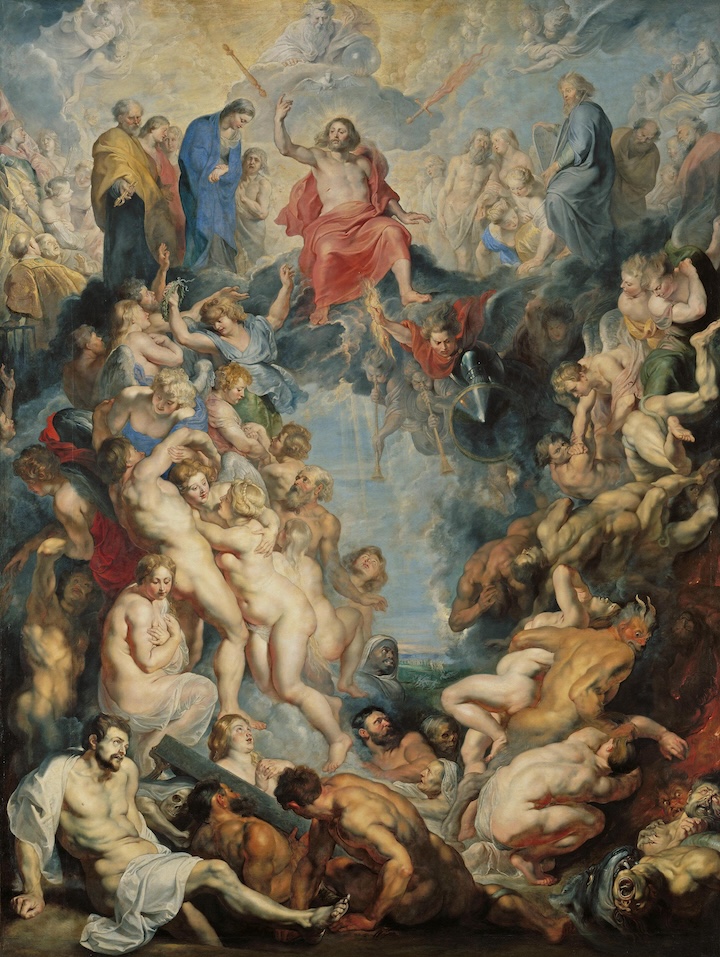During Advent, we are preparing for Christmas, but the readings are mostly about the Second Coming of Christ.
Some scholars say there is ambiguity in the Scriptures about the Second Coming. They claim that when St. Paul says that “we who are alive, who are left until the coming of the Lord” in 1 Thessalonians 4:15, he believed he would not die before Christ’s return. In 2 Corinthians 5, he suggests that he will not live till the Second Coming, but after His death, He will be with Christ in glory. In either case, Paul says that “the day of the Lord will come like a thief in the night.”
Some passages in the Scriptures suggest that the kingdom of God is not coming soon, but in the more distant future. In Luke 19, in the parable of the talents, Christ tells the story of a nobleman who goes into a far country “to receive kingly power and then return.” Luke tells us that Jesus told this parable, “because he was near Jerusalem, and because they supposed that the kingdom of God was to appear immediately,” and He wanted to correct this error.
In other places, however, we are told that the kingdom of God has come with Christ. In Luke 17:21, for example, asked by the Pharisees when the kingdom of God is coming, Christ replies: “the kingdom of God is in your midst.”
So how do we reconcile all these different statements about the end times and the coming of the kingdom? Will it be soon? Is it far off? Or is it already present?
In a sermon Thomas Aquinas gave during Advent, he distinguished four advents of Christ: His advent in the flesh in the Incarnation; the advent by which he comes into our souls; the advent in which he comes at the death of the just; and the advent in which he comes at the end of time in the final judgment. All four are connected in a single providential plan of salvation.
We look forward to Christ’s Second Coming, but his Second Coming presupposes that there was a first. And while we await Christ’s Second Coming, Christ is not simply absent. He is risen and remains present. And He reveals that continued presence most fully in the Eucharist, when we encounter the risen Christ as intimately as did the Apostles in the upper room.
In one sense, the kingdom of God has always existed since all of Creation is ruled by God’s divine providence. But Creation has been subjected to futility, says St. Paul. The disorder introduced into Creation by human sin needs to be rectified, but this is not something man can do by himself, because the disorder is in his own soul. Happily, God does not allow man to uncreate what he created.

And so, the kingdom of God was established anew by Christ when the Word became flesh, dwelt among us, and sacrificed Himself in love on the Cross. By his death and Resurrection, Christ broke the chains of sin and death. But we, the prisoners whom he has set free, must continue to live in that freedom. God will not work our salvation in us without us. We have our own cooperative role to play. We must do our part to re-establish the rule of God and set the world free from its bondage by becoming the sons of God we were created to be.
This transformation will not happen overnight. Nor was it completed when Christ died and rose from the dead. Our time now is something like the time of the wandering in the wilderness of the Jewish people after they made the covenant with God at Mt. Sinai. They knew they would enter the land promised to them by God, but they did not know when. So, they had to live each day in faith, trusting that by doing their part in obedience to the law, they would be made ready for that day, in the unknown future, when as a people, they would reach the promised destination. So too, the kingdom has been established in one sense, but in another, its promise is still being fulfilled.
When will we reach the end of time? We do not know. What we do know is how we should live, that we should love God and neighbor and that, even in death, God will not abandon us. When we die, Christ incorporates us more fully into his glorified Body – an incorporation that has already begun in life. Meanwhile, we must “walk by faith, not by sight.” (2 Corinthians 5:7) And, as Christ warns, we must “watch, for you do not know on what day your Lord is coming.” (Matthew 24:42)
So, with Thomas, we can affirm the four advents of Christ. Yes, Christ will return at the end of time, but He also comes to the faithful at the hour of their death. And He also comes to us now, especially in the Eucharist. We should not separate advents connected within God’s providential plan of salvation. Appreciating the “spiritual senses” of Scripture can help prepare our minds for having this breadth of vision.
Even the ambiguities in the Scriptures serve a purpose. Because we are left unsure when Christ will return or when our final days will arrive, we must live each moment as if Christ could come within the next ten minutes. I tell my students that they should keep in mind that Christ might return before the end of class. So, we ought to consider what we would want Christ to find us doing. But then again, if for God a thousand years are as a day, as we read in 1 Peter 3:8, and since we can’t know the day or the hour, they should probably go ahead and study for the final exam.
We must be patient but stay vigilant.















